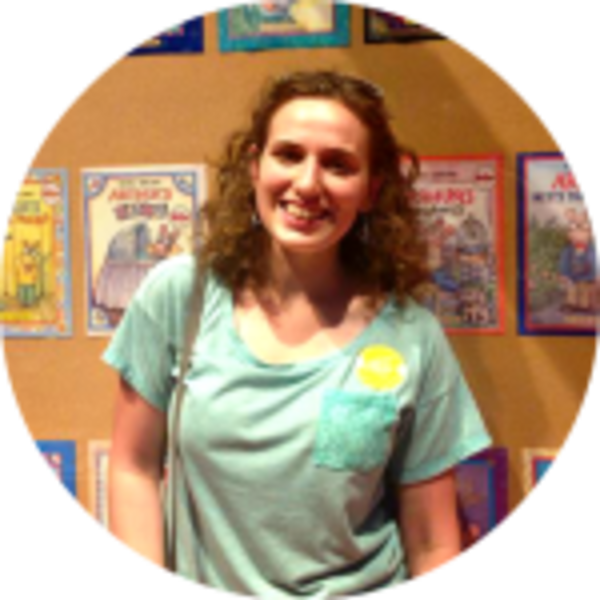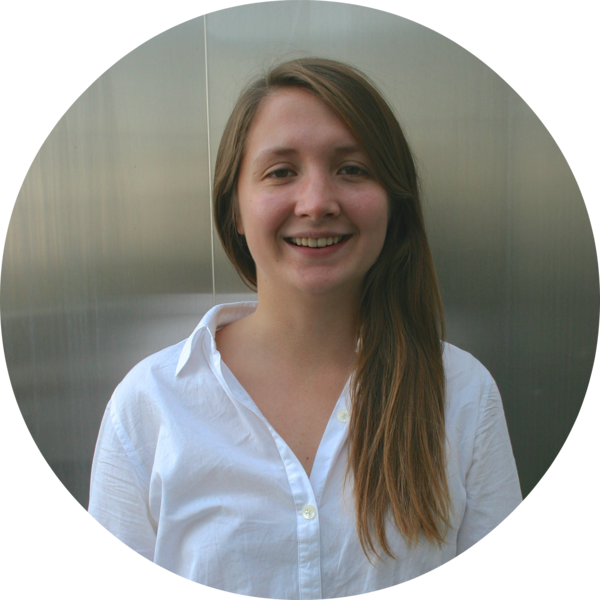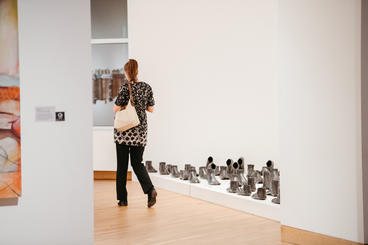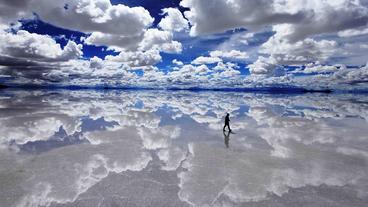Interview by Luna Allen-Bakerian, Transcription by Hannah Germaine
105 community members gathered in the Riverview Gallery this gloomy fall morning for the October installment of Minneapolis’ Creative Mornings series. Mark Wheat of MPR’s The Current prepared a lecture for the theme of Crossover, discussing his extreme geographical and career transitions. I followed Mark and Luna into a conference room for their pre-lecture interview. Mark said that this event would be new for him, as his DJ slot falls at night and he is not typically a morning person. We chatted about our astrological signs (he’s a Libra) and about his reliance on the moon calendar before settling into the interview. Look out for Luna's Radio K DJ set next Monday night, where she will share Mark's picks (amongst her own)!
Which crossover [in your life] do you think has been the most significant so far?
I’d have to say crossing the ocean. Living in two separate cultures, joined by familiar language, is an interesting experiment. It forces you to reevaluate some of the things that you grew up thinking were set in stone. That’s good. I think that’s what crossovers are all about. Pushing your comfort zone. If someone had asked me twenty years ago, I’d never have said that I’d become an American citizen. I was not totally convinced that I would stay for my entire life, but two years ago I did become a citizen and I don’t foresee going anywhere, even within the United States. I love Minnesota now. It’s become very special to me because of the success of The Current. There’s no way that I’d be able to have the job that I have now [if I had stayed in England].
What do you think you’d be doing if you hadn’t come here? What do you think you’d be doing in England as a job?
Well I [had] hoped to be a teacher. That’s why I loved Radio K. I thought that was a dream job because I got to hang with students and I got to do radio, too. But that’s because I couldn’t have even dreamed up The Current twelve years ago. I went to teacher training college after University and that’s how I first got over here. I worked for two years on summer camps in upstate NY. That was the easiest way for a Brit to get over here, they found you the job and they gave you the six weeks travel time afterwards. I couldn’t get a job as a teacher when I graduated. I went back to where my mother lived and I couldn’t even get on the substitute roll [because] there were so many unemployed experienced teachers. To answer your question, I have no idea. I wasn’t having a very good start at [teaching] and the last job I had before I came over was as a chauffer. So maybe I would have been a chauffer, because I love driving and that was fun.
That’s perfect that you mentioned Radio K. I DJ at Radio K. I’m wondering, if you could DJ a four-song set now at Radio K, what would be your picks? Assuming [they were] in the library.
Which [they] would be, because I would have to make [the set] Radio K significant. I would have to have a song by The Fall because historically I’ve said they’re my favorite band of all time. I think [I would incorporate] Low, too, because obviously the K has a huge tradition with local music, and those guys have been special to me as a fan, and just sharing experiences with them. When Paul Wellstone died they were in the [Radio K] studio and did a special set for him, so that was kind of crazy. They’ve been a band I’ve grown up with in the scene and they exemplify what’s great about local musicians: they stay here; they help younger musicians. They foster the community that we’ve got here in Minnesota. So that’d be symbolic. But how would I mix from The Fall to Low?
Segway Band.
Yeah, good idea! Well, and I’m not just saying this because you happen to be of the same gender, but I always like gender balance, too. I struggle with that sometimes on The Current. It is tough sometimes to fit two or three voices of female origin in every hour, which is what I try and do. So there would have to be a female artist. Who would that be? Maybe Stereolab. I don’t know why they come up to me, but they’re one of those Radio K Bands. They’re probably a band that I might not have discovered without the K. And they were one of those bands that we always played way too much. Then something dance-y. Maybe St. Germain. You know, I used to be a live DJ, too, and electronic music was a big part of it. Or Daft Punk. I remember us playing “Around the World” too much, too, because that’s, like, 9 minutes long or something.
It’s fun, though. I think that’s a good balance.
Stereolab could [transition] into dance-y.
That’s the Segway.
That’s the Segway!
Right now we have exhibits that are all about yearning to roam, and since you’ve moved quite a bit in your life, I’m wondering if you think wanderlust is a good thing or a bad thing. Some people think it’s this romantic idea and some people are like, ‘eh.’
I think you need a balance. I think it’s a good thing at certain times in your life. I’ve always said to young people, ‘travel if you can.’ The experience, for me, totally changed my life. Coming over here for the first time from a small rural community and seeing something like New York literally blows your mind. I think the same thing can happen for you guys going back to Europe or going to South America or wherever. Wanderlust at a certain point is good. And until I got [to Minnesota], I hadn’t stayed in the same place literally for more than two or three years. And when I got here I decided, ‘if you keep doing that you never reap the rewards of whatever it is you’ve put your time into.’ I looked around at First Avenue when I went there one of the first times and I thought, if I can do something that means that I get to be known in this club, I think that would be a good thing to do with my life. And now I get recognized all the time. I think wanderlust is good to learn and figure out what you want to do with your life, and then at a certain point you have to figure out, ‘now I’m going to stay here and do this.’ But then, that’s me. I’ve often said, [and] I’ve often heard, that the Twin Cities is a good community because it’s got a lot of people who grow up here and stay here, a lot of people who’ve come here (like myself), and it’s got a lot of people who grew up here, left, and then have come back. And that makes a nice mix. We have aspirations way beyond our size, in terms of music and art. The expectations have been raised because of people who have gone away and come back, and because of people who come here to live because they like that community. So wanderlust [is] good, but it has to balanced, too.
You’re answering with “balance” throughout. It’s the Libra [in you]! You’ve kind of Segway-ed perfectly into this, but if you could give advice to your 20-year-old self, what would it be?
It actually would be about spirituality. I was just writing a piece about Bob Dylan’s Slow Train Coming, which came out when I was 19. It’s the only Dylan album I ever bought, and you look back now and it’s actually disrespected in terms of his work. But he asks the question, ‘who do you serve?’ The idea of Bob Dylan saying you’ve gotta serve somebody blew me away when I was 19. Even when you’re Dylan you’ve gotta serve somebody? I didn’t realize his background of being Jewish. We didn’t have a Jewish community where I grew up so I didn’t understand that, [but] the Christianity aspect of [serving somebody] was interesting for me. I wasn’t brought up from a Christian household and I grew up in the most Pagan part of the country, so those were my roots. When I was 20, I thought about [spirituality], but I never did the work to figure out what I was. I always said, ‘I’m agnostic,’ or, ‘I’m atheist.” But I didn’t really pay attention to it. It’s only been the last 10 years, specifically since I met my wife, that I’ve really paid attention. What is going on here? What are we supposed to do? What are we connected to? Who do we serve, if anyone? And how can it help my life? Yoga or meditation, and paying attention to the moon and the planets and the universe, and respecting [them] as a spiritual force has been huge for me. And it’s brought balance. I’m glad you picked up on that key word, because to me I was always imbalanced. I was too much in my head, and didn’t pay attention to the physical entity that we are. I hadn’t asked those questions seriously and I hadn’t developed a spiritual discipline. I think we all have to figure out what that is for each of us. I’m not convinced by any of the major religions because they tend to all tell you to do something that everybody else does, where the way that I understand [that] spirituality works is that we’re all different, and therefor we all need different spiritual keys to make us function at our highest level, highest consciousness. So you can take a bit from everything. I just did this thing with Cloud Cult. They’re a very spiritual band. The audience wanted to know what [Craig] was. You can’t [put a label on him], but his work is really spiritual. He does a little meditation — just trying to find some stillness. It’s funny being [here at Creative Mornings] where it’s all kind of [about] social media. [It’s] the Western way [to] always be busy and engaged and connected. I don’t think it’s the right balance for me. I just have to counter that with a little stillness.




